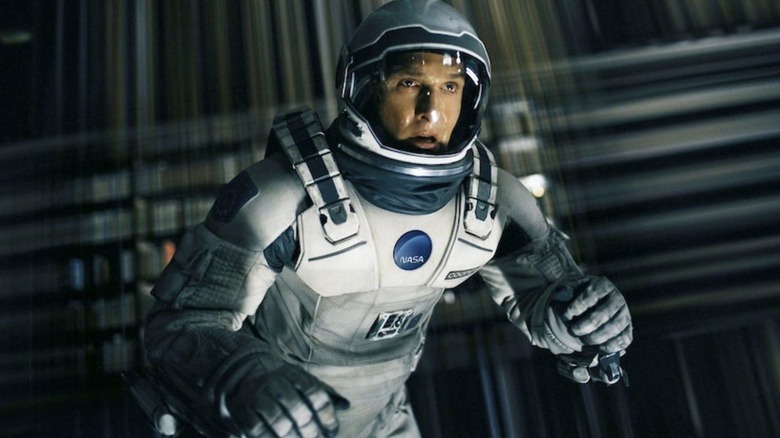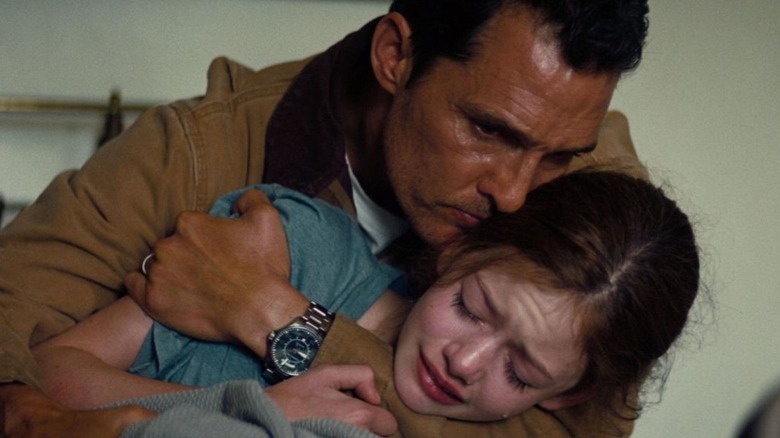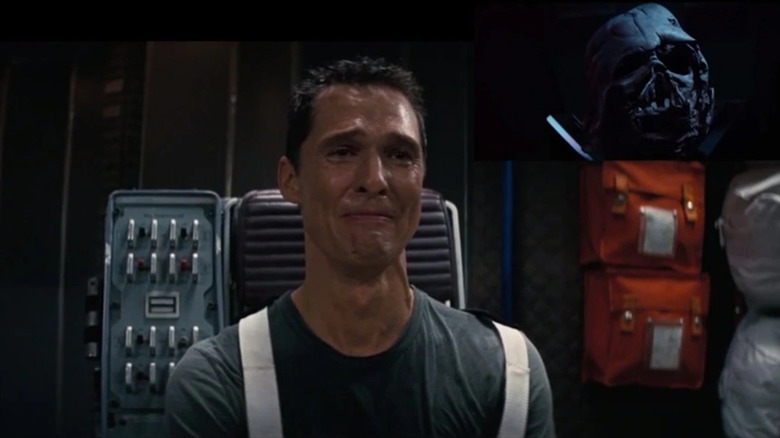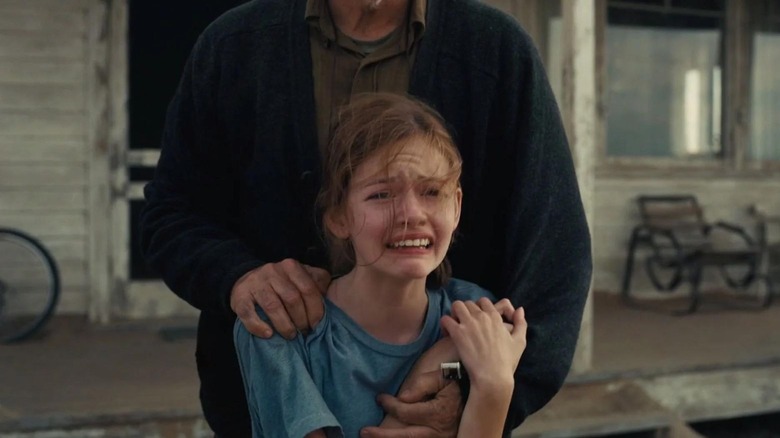Christopher Nolan Had One Goal For The Audience While Making Interstellar
Some science fiction movies not only transcend time — but they also transcend genres. Spike Jonze's 2013 film "Her" explored technology's impact on human relationships. A24's "Everything Everywhere All At Once," underneath its mind-boggling visuals, remains a story about familial discords and the power of love and reconciliation. And then there is Christopher Nolan's emotional masterpiece "Interstellar," a tale deeply entrenched in the science of the future, and yet, proves if there's anything with the power to transcend dimensions of time and space, it's love.
Nolan was intentional in weaving "Interstellar" with a simple concept: that love was an incomprehensible but observant working force in our lives. Everything else surrounded it. Nolan used sci-fi elements to challenge or influence the nature of relationships between the film's characters. But in the end, "Interstellar" was a story about a father and a daughter and the kind of love that can only be shared and understood by them. Turns out, it was Nolan's goal to present that view to the audience.
Interstellar is a film about the human experience
"Interstellar" is Christopher Nolan's space odyssey about a last-ditch mission to outer space to find a new home for humanity. Its ambitious sci-fi setting maintains love at the film's center. The relationship between Cooper (Matthew McConaughey) and his young daughter Murph (Mackenzie Foy) holds the rest of the tale hostage — it is the medium that connects all else. Christopher Nolan's vision for the movie is presented in the film itself, during a conversation between Professor Brand (Anne Hathway) and Cooper, where the two scientists talk about love and how it isn't quantifiable.
When Nolan talked with Entertainment Weekly in October 2013, the filmmaker shared his early vision for the film: the idea that science and love were interconnected. The movie brought to life the very moment science realized it needed to address human elements and conceptions. We're human. We have an emotional response to everything we do in our lives, even fulfilling our duties. Nolan wanted "Interstellar" to present audiences with questions that were at the movie's heart.
'It also speaks to the heart of the movie'
Here's the filmmaker's full quote:
"What happens when scientists bump up against these things that defy easy characterization and analysis—things like love? ... We are at an interesting moment where science realizes it has to begin addressing abstractions and human elements, and I wanted to get that in the film. It also speaks to the heart of the movie and the dilemma facing our characters. You have an intellectual commitment to duty, you know you are doing the right thing, but you have your emotional response to these things, too. How do you weigh them? These felt like interesting questions, and I wanted the audience to ask them consciously. You have a choice: You leave these things as subtext, or you try to bring them to the foreground, so the audience can be plugged into the themes that interest you, be part of that ride."
Love is essential, even if it defies logic
Nolan further suggested that engaging the audience emotionally by threading real feelings and love into "the heart of the movie" was incredibly important to him. The filmmaker is renowned for his spectacle-type filmmaking; he is, after all, the visionary behind "The Dark Knight" trilogy. "Interstellar" is no blockbuster of the same sort, but it is a prestigious production that showcases the heights of power that Nolan as a storyteller, possesses.
In "Interstellar," Nolan represents humankind at every point in their existence, and the qualities that make them human: their courage, their selflessness, their selfishness, and everything wonderful that comes in between.



